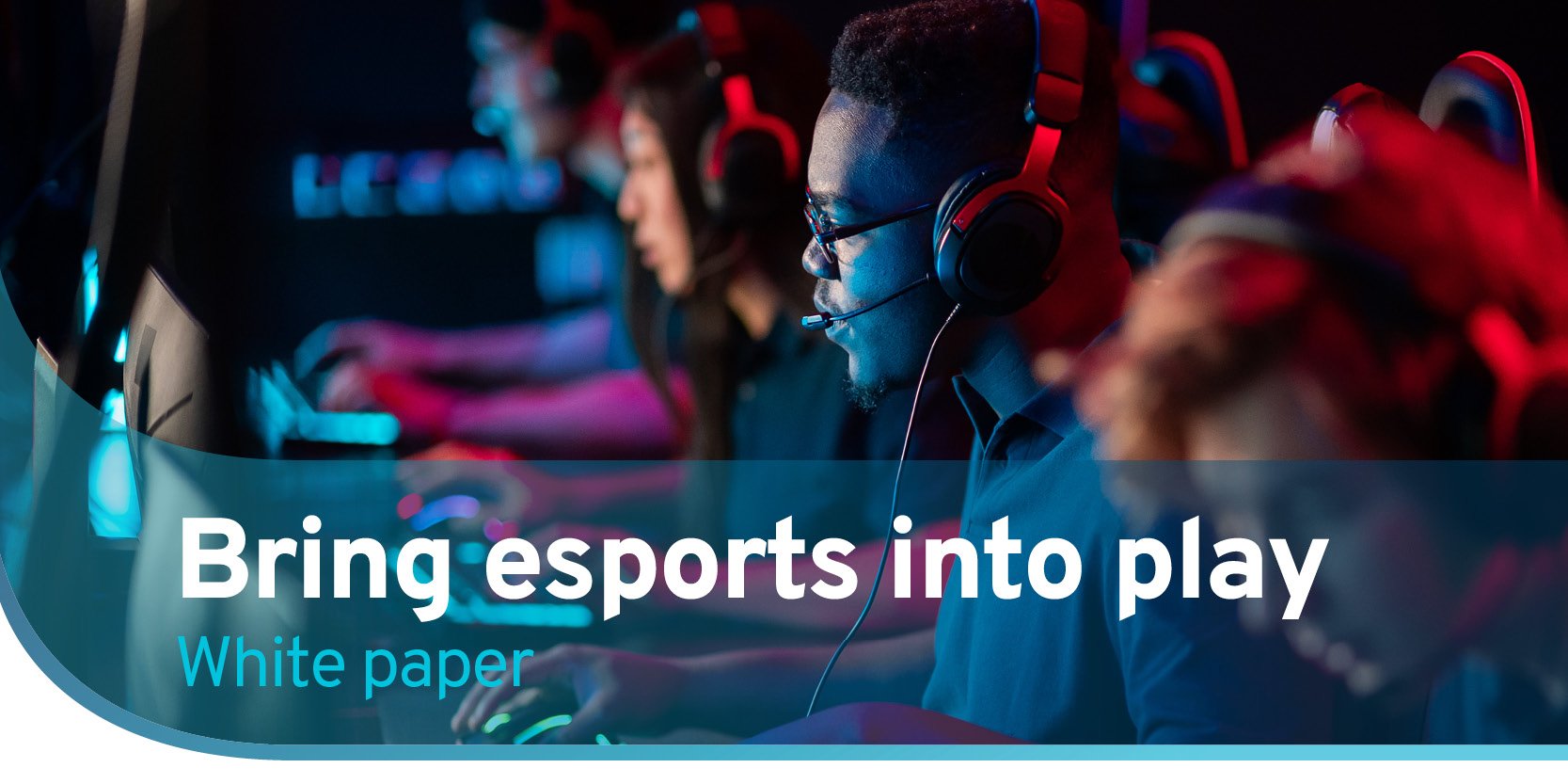
Kambi’s SVP Risk & Compliance, Oliver Lamb, examines the landscape for esports betting and explains how Kambi and Abios are working to uphold integrity.
What are the responsibilities for Kambi’s sportsbook control and integrity teams around esports?
The responsibilities on our 24/7 sportsbook control team are no different on esports to any other sporting event we offer. To my mind this is a very positive thing – it gives esports, which is unquestionably a burgeoning and novel element of the sports betting experience – an established structure in which integrity and oversight can take place.
Although esports betting presents a different experience for the end user, the back-end integrity monitoring is the same as for any other sport. We’re looking for the same kinds of things in terms of irregularities in betting patterns, and using the same escalation routes.

If we do see anything suspicious, we inform all of our operators of the issue immediately so that straight off the bat they are aware of the issue. We then promptly raise it with the relevant regulators, who are empowered to potentially pass matters to law enforcement, and we would of course take the issue to our integrity partners such as the IBIA (International Betting Integrity Association) as well.
Are there any factors which make esports unique from an integrity perspective?
There are certainly unique challenges, not just for sportsbooks but also tournament organisers and those involved in the governance of the games. For the vast majority of other sports, apart from perhaps darts at the height of the pandemic, it’s necessary for the participants to be physically present. This isn’t the case for esports, which can be played remotely, so organisers have reduced access to them around the event. The governance of esports itself is also quite fractured at present. There is no equivalent of a FIFA, or the ATP and WTA, with the resources to implement universal standards upon those involved. As such, those integrity messages from the sport to the participants can run the risk of being weaker, with less understanding of what fraud is, what their responsibilities are and what implications there could be if they are found to have committed anything suspicious.
Moving beyond integrity, many regulations, for example in Germany and the US, will separate esports, either regulating and controlling it separately or blocking it from the offering, which is something Abios and Kambi need to and do support if needed. In general, there are also more minors participating at the highest level of esports than might be found in more traditional sports, and Kambi and Abios work hard to ensure we are fully across the data and records of participants so that we can update our offering and successfully meet any local regulations.
Are there any factors which make esports unique from an integrity perspective?
There are certainly unique challenges, not just for sportsbooks but also tournament organisers and those involved in the governance of the games. For the vast majority of other sports, apart from perhaps darts at the height of the pandemic, it’s necessary for the participants to be physically present. This isn’t the case for esports, which can be played remotely, so organisers have reduced access to them around the event. The governance of esports itself is also quite fractured at present. There is no equivalent of a FIFA, or the ATP and WTA, with the resources to implement universal standards upon those involved. As such, those integrity messages from the sport to the participants can run the risk of being weaker, with less understanding of what fraud is, what their responsibilities are and what implications there could be if they are found to have committed anything suspicious.
Moving beyond integrity, many regulations, for example in Germany and the US, will separate esports, either regulating and controlling it separately or blocking it from the offering, which is something Abios and Kambi need to and do support if needed. In general, there are also more minors participating at the highest level of esports than might be found in more traditional sports, and Kambi and Abios work hard to ensure we are fully across the data and records of participants so that we can update our offering and successfully meet any local regulations.

How has esports developed in terms of the approach to integrity in recent years?
Things have moved on a long way compared to the early days when there were quite a few high-level scandals, looking back six or seven years when esports was the new kid on the block. Things have advanced in a number of different ways. Regulators are increasingly exercising their own duty of care around esports to ensure that it is offered in the right way. That oversight kicks on into esports organisers, who are increasingly cognisant of the fact that these events generate significant betting movements. Much as with traditional sports, anything which calls into question the integrity of sport is as damaging to the sport itself as much as the betting companies, and as a result of this education around governance and events is improving. The final point to make would be that there are organisations out there, such as the Esports Integrity Commission, who are helping to bridge the educational gap between betting, esports tournament organisers and the players themselves.
How do Kambi and Abios reconcile the challenges of offering esports under so many different jurisdictional frameworks?
Kambi is live in more than 40 jurisdictions, and we have a deep, proven network of structures in place to ensure we are always in full compliance with local regulations, as well as the technical tools to handle compliance at scale. Naturally, esports does offer unique challenges: As I’ve alluded do, certain jurisdictions such as Sweden do require that we block betting on U18 participants from the offering, while we blocked a recent League of Legends tournament in New Jersey as one participant on each side were minors. There is a degree of manual input to our checking on esports to ensure we stay fully compliant, and this is somewhere that our partnership with Abios will really move things to the next level. Abios has long been providing compliance solutions to operators, and we will be able to integrate into our advanced technical tooling so that compliance at scale becomes fully automated and therefore as secure as possible across all regulations.
How can those regulators who don’t currently permit esports be helped to become more comfortable as it becomes a more mainstream betting activity?
There are a number of jurisdictions that are quite significant in terms of turnover, such as the UK, where the regulations don’t specifically block any sport and you can offer most events as long as they are in good taste, but that’s something of an outlier. Most regulators have moved cautiously, putting a full block in place or establishing caveats. This is something both the betting industry and the esports industry want to work with regulators to move beyond.
In a similar vein to college sports in the US, the esports industry recognises the benefits a regulated betting ecosystem can bring, not only to the bottom line and in terms of generating consumer interest, but also in enhancing the integrity of the events themselves.
A regulated industry improves governance by providing an all-important layer of oversight, and this is something that Kambi has consistently worked with regulators and attempted to unlock. During the Covid lockdown periods, when esports were some of the only events to offer, we were working with US regulators in particular to allow betting on esports, working closely with them to enhance their level of comfort with these events.
In tandem with Abios we can now make that message even stronger. We’re no longer just a betting company, but a company with vast internal esports experience, extensive integrity monitoring controls and as much compliance data as one could need to ensure proper controls and duty of care. The Kambi and Abios combination puts both companies at the cutting edge of esports betting, and there are few that will be able to keep pace as esports betting continues to open up.
Download Kambi and Abio’s white paper on esports to learn more about the current state and future potential of the esports betting industry, with interviews with Abios and Unibet.













